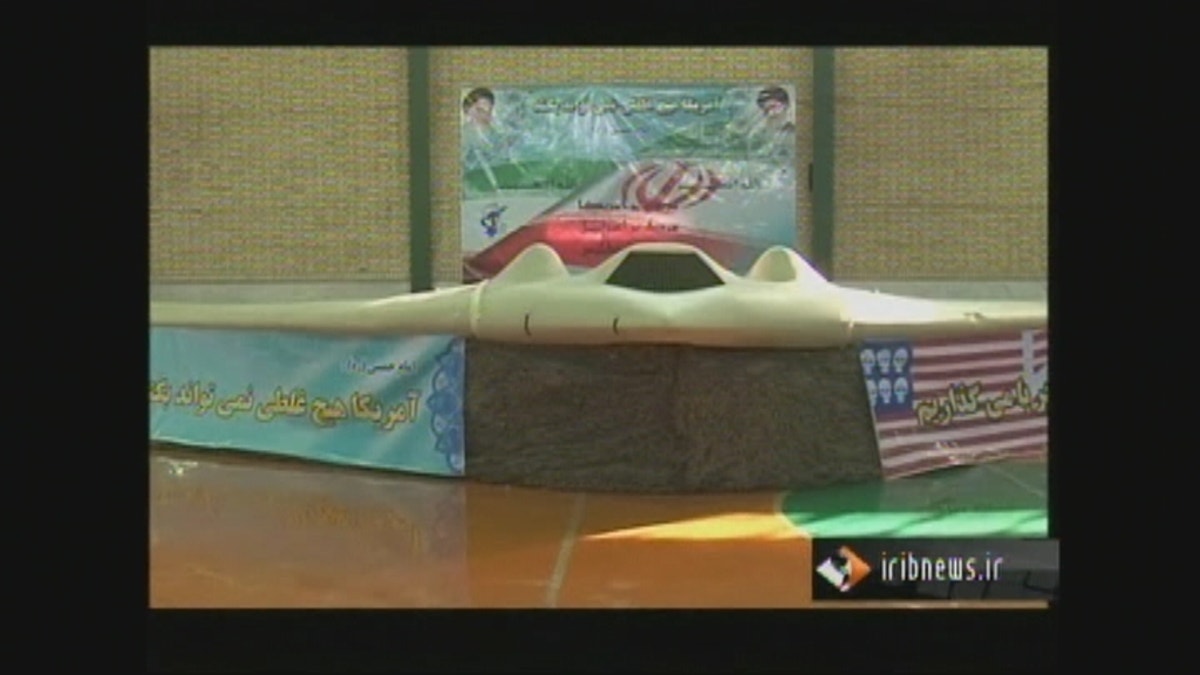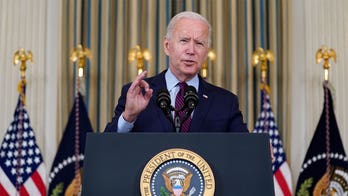
Dec. 8, 2011: Images aired by Iranian state television show the secret U.S. drone that went down last week in eastern Iran.
WASHINGTON – A U.S. official says Iran will find it hard to exploit any data and technology aboard the captured CIA stealth drone because of measures taken to limit the intelligence value of drones operating over hostile territory.
The official also said Saturday that despite Iran's latest claims to have hijacked the RQ-170 Sentinel and brought it down near the eastern Iranian city of Kashmar, the U.S. is convinced that the drone malfunctioned.
"The Iranians had nothing to do with it," the official said.
The official, who could speak about classified matters only on condition of anonymity, did not provide details. But independent experts say the data and communications of the unmanned aircraft are heavily encrypted, making it difficult for Iran to harvest much intelligence from them. U.S. officials previously have said the drones have no self-destruct mechanism.
The RQ-170 was nicknamed "the Beast of Kandahar" because it was first spotted over Afghanistan. It was used to conduct surveillance of Osama bin Laden's Pakistani compound before he was killed in a U.S. raid.
The Christian Science Monitor on Thursday quoted an unidentified Iranian engineer as saying that Tehran seized control of the drone by exploiting a key vulnerability in its navigation system, its reliance on GPS technology to guide it home when it loses contact with U.S. controllers.
The engineer said Iran's electronic warfare specialists jammed the RQ-170's satellite communications link and tricked its autopilot into thinking that it was landing at its base in Afghanistan when it touched down in Iran.
"The GPS navigation is the weakest point," the engineer was quoted as saying. "By putting noise on the communications, you force the bird into autopilot."
U.S. officials say Iran merely picked up a drone -- or large pieces of one -- that had lost contact with its controllers and landed inside Iranian borders relatively intact.
What appears to be an Air Force Scientific Advisory Board report on drone warfare, posted on a website, found that communications links are a "primary target of the adversary" in robotic aircraft operations.
The April 2011 report added: "Small, simple GPS noise jammers can be easily constructed and employed by an unsophisticated adversary and would be effective over a limited RPA (remotely piloted aircraft) operating area," the report said.
The website, Public Intelligence, describes itself as an international consortium of independent researchers dedicated to providing access open-source intelligence materials. Some independent U.S. experts confirmed that the document accurately describes a well-known potential vulnerability in drones.
But Ted Beneigh, an expert on unmanned aircraft systems at Embry-Riddle Aeronautical University in Florida, said it was "highly unlikely" that the Iranians have a system that could interfere with the RQ-170's GPS navigation system.
The U.S. drone, Beneigh wrote in an email, would have used "military GPS frequencies, whose timing and code sequence is classified. Commercial GPS repeaters operate on civilian frequencies."
House Intelligence Committee Chairman Mike Rogers said this week that even if Iran can reverse-engineer the captured technology by the time they finish it may be obsolete.
Iranian Foreign Minister Ali Akbar Salehi on Saturday told IRNA, Iran's official news agency, that Tehran had delayed announcement of the captured drone, which it displayed on Iranian television Dec. 8, to test U.S. reaction to the loss.
After initially saying only that it had lost a drone operating near the Afghan-Iran border, U.S. officials eventually confirmed that Iran had captured a drone sent to monitor Iran's military and nuclear programs.
President Barack Obama on Friday said the U.S. planned to keep up the pressure on Iran to prevent it from acquiring nuclear weapons.
"And that's why, rest assured, we will take no options off the table," he said. "We have been clear."
The phrase "no options off the table" is meant to signal that the U.S. is prepared to take any measure up to and including a military strike against Iran's nuclear facilities.
While the U.S. and many other countries suspect Iran is engaged in a clandestine effort to build nuclear weapons, Tehran insists that it is interested only in the peaceful uses of atomic energy.




